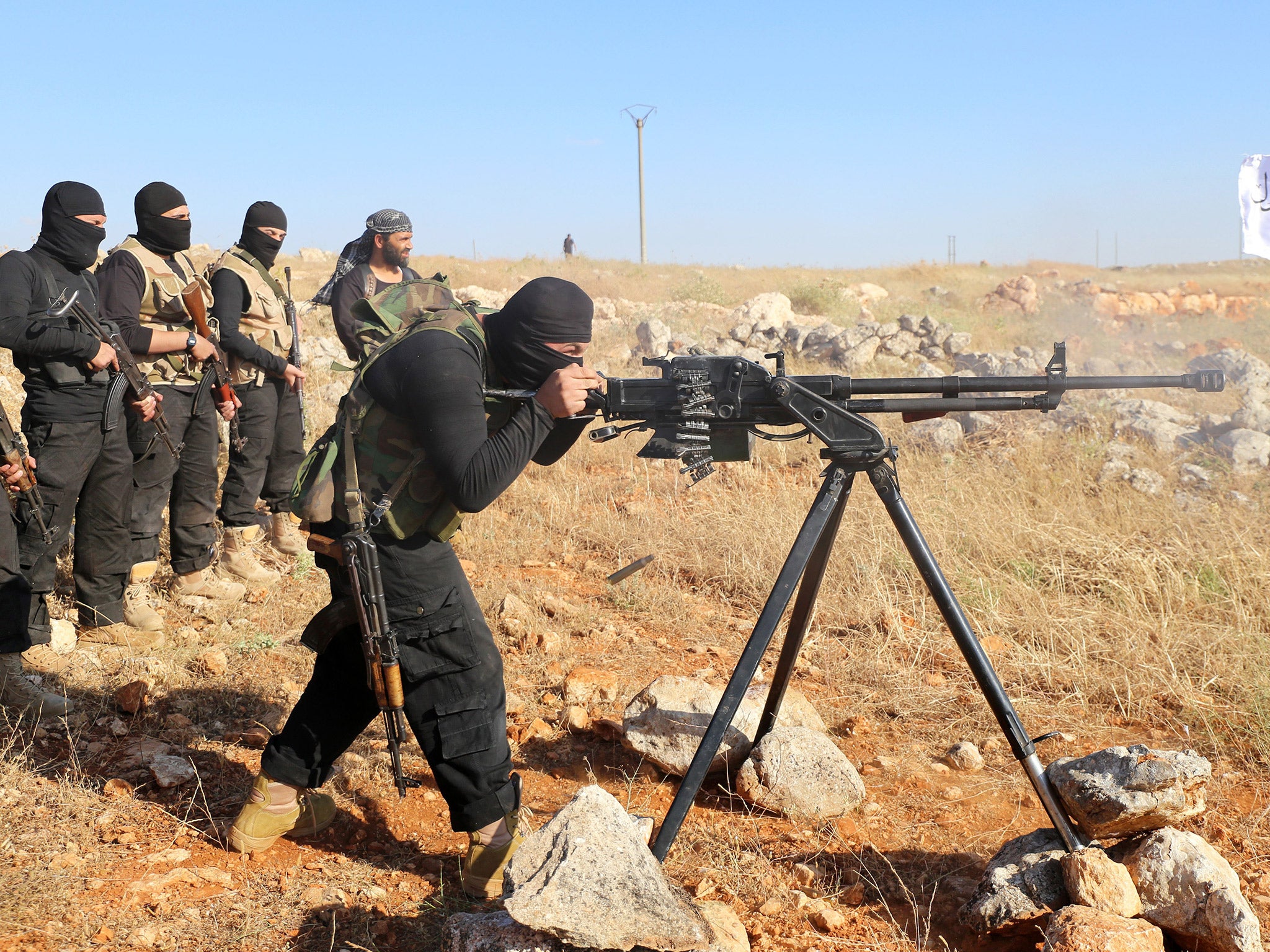Syria crisis: Turkey and US to carry out operation to drive Isis out of key Turkish border region
The two countries will provide air cover as the zone is cleared of Isis fighters by the Free Syrian Army

Turkey and the US are to carry out operations aimed at driving out Isis from a militarily important part of Syria’s border region with Turkey. The move is part of the elaborate chess game being played in the area in which the ultimate prize is Aleppo and a decisive victory in the Syrian civil war.
The aim of operation will be to establish an “Isis-free zone” in a 60-mile long area west of the Euphrates through which run the roads from Turkey to Aleppo, the second largest city in Syria.
The US and Turkey will provide air cover as the zone is cleared of Isis fighters by the Free Syrian Army, but no Turkish or American ground troops will be involved.

“Seventy five per cent of Syria’s northern border has so far been shut down [preventing Isis’s access to Turkey],” said US Secretary of State John Kerry. “And we are entering an operation with the Turks to shut off the remaining 98km.”
None of this is quite what it seems. Though Isis has been cut off from the border crossings it has used over the past three years to receive volunteers and equipment from Turkey, this happened because of successful offensives by the Peoples Protection Units (YPG) of the Syrian Kurds, and in the teeth of Turkey’s objections.
The YPG defeated an Isis attempt to seize a border crossing at Kobani and captured another at Tal Abyad, giving the Syrian Kurds control of half the 550 mile-long Syrian-Turkish border. Turkey had threatened military intervention if the YPG advances west across the Euphrates and capture Isis’s last access to Turkey at Jarabulus as well as territory between there and the Kurdish enclave of Afrin.
Problems are likely to arise for the US-Turkish accord because Ankara’s definition of a moderate appears to include the extreme Sunni hard-line groups like Ahrar al-Sham that normally fights alongside Jabhat al-Nusra, the Syrian branch of al-Qaeda. At the G20 meeting last weekend President Barack Obama made strong objections to the idea of a “safe zone” in Syria, saying its establishment would require US ground troops to be truly safe. He said “the bulk of deaths that have occurred in Syria, for example, have come about not because of regime bombing, but because of on-the-ground casualties”.
The US and Turkey appear to have now settled for a less ambitious operation, though still one likely to produce friction between all parties involved in the war.
Turkey may feel threatened because of the three offensives launched by the Syrian army, with Russian air support, in the north of the country since the start of Russian air strikes on 30 September that could see Mr Assad’s forces take part of the frontier with Turkey north of Latakia. A Syrian offensive south of Aleppo, with ground support from Hezbollah and the Iran’s Islamic Revolutionary Guatrd Corps was thrown back by the opposition.
But 25 miles east of Aleppo, the Syrian army won its biggest victory for two years when it broke through Isis lines on 10 November to relieve its military air base at Kweiris, held by 2,000 Syrian soldiers who had been besieged by Isis for two years. The success has boosted the morale of the Syrian army which had looked fought-out and exhausted before Russian intervention.
The threat now from the point of view of the armed opposition is that the Syrian army backed by Russian air strikes will move north of Aleppo and encircle the rebel-held eastern part of the city.
Join our commenting forum
Join thought-provoking conversations, follow other Independent readers and see their replies
Comments